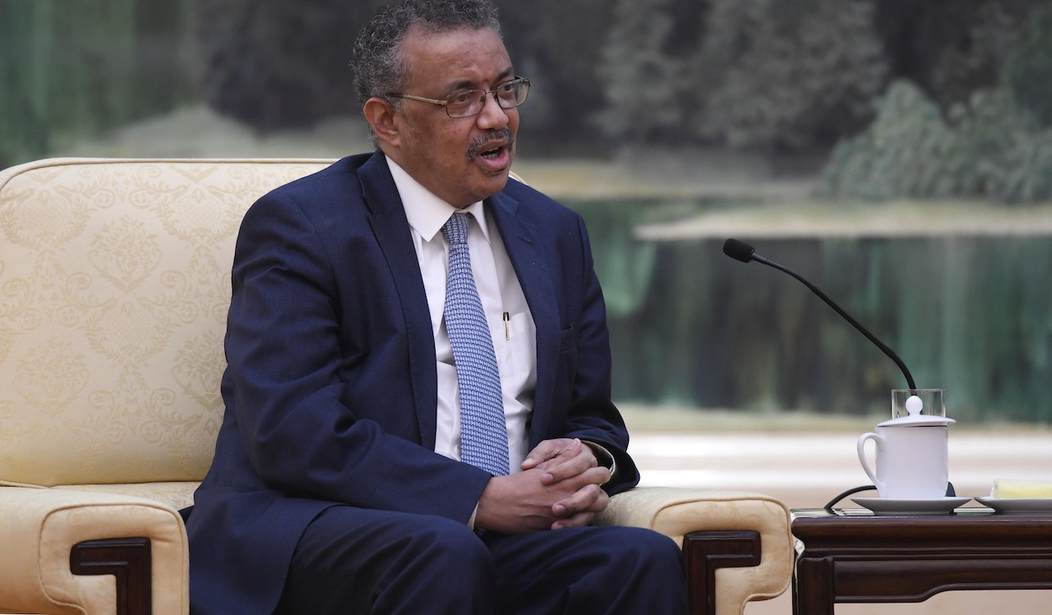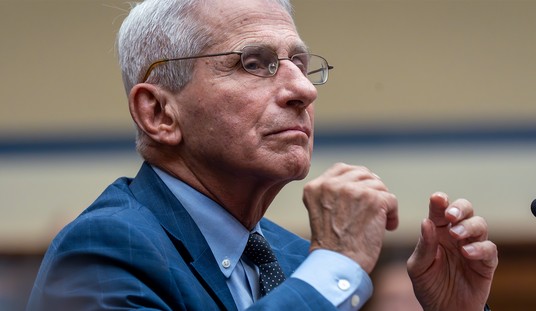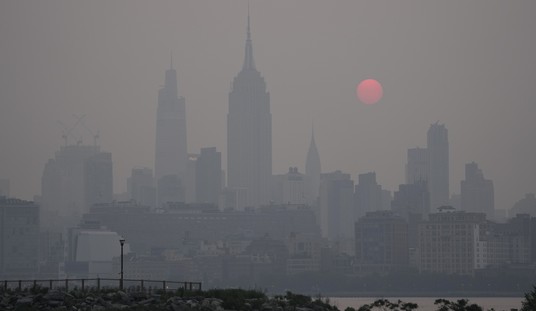The opinions expressed by contributors are their own and do not necessarily represent the views of RedState.com.
Remember when America went through the COVID-19 pandemic and the World Health Organization (WHO) kept giving contradictory recommendations on handling it? You might also recall how in thrall to China this international organization was – refusing to tell the truth about the origins of the virus to avoid angering the Chinese Communist Party (CCP).
Well, dear reader, what do you think might happen if the WHO were given the power to call the shots next time there is another outbreak? What if these unelected bureaucrats were able to tell us what to do to keep our people safe?
It probably wouldn’t be pretty, would it? But this eventuality could become a reality if President Joe Biden and his merry band of Democrats get their way.
The Epoch Times, on Saturday, reported that the Biden administration is getting ready to enter the United States into a “legally binding” accord with the WHO “that would give the Geneva-based United Nations health agency the authority to dictate America’s policies during a pandemic.”
From the report:
Despite widespread criticism of the WHO’s response to the COVID pandemic, U.S. Health and Human Services Secretary Xavier Becerra joined with WHO Director-General Tedros Adhanom Ghebreyesus in September 2022 to announce “the U.S.-WHO Strategic Dialogue.” Together, they developed a “platform to maximize the longstanding U.S.–WHO partnership, and to protect and promote the health of all people around the globe, including the American people.”
These discussions and others spawned the “zero draft” (pdf) of a pandemic treaty, published on Feb. 1, which now seeks ratification by all 194 WHO member states. A meeting of the WHO’s Intergovernmental Negotiating Body is scheduled for Feb. 27 to work out the final terms, which members will then sign.
The zero draft appears to endow the WHO with the authority to “declare and manage a global pandemic emergency,” according to the Epoch Times. “Once a health emergency is declared, all signatories, including the United States, would submit to the authority of the WHO regarding treatments, government regulations such as lockdowns and vaccine mandates, global supply chains, and monitoring and surveillance of populations.”
David Bell, a public health physician and a former WHO staffer, told the news outlet that these people “want to see a centralized, vaccine-and-medication-based response, and a very restrictive response in terms of controlling populations.”
He added: “They get to decide what is a health emergency, and they are putting in place a surveillance mechanism that will ensure that there are potential emergencies to declare.”
This is part of a two-pronged approach to global pandemics. The World Health Assembly launched an initiative to develop new global pandemic regulations that would also overrule the laws of member states. “The World Health Assembly is the rule-making body of the WHO, comprised of representatives from the member states,” the Epoch Times explained.
“Both [initiatives] are fatally dangerous,” said Francis Boyle, professor of international law at the University of Illinois College of Law. “Either one or both would set up a worldwide medical police state under the control of the WHO, and in particular WHO Director-General Tedros.”
“If either one or both of these go through, Tedros or his successor will be able to issue orders that will go all the way down the pipe to your primary care physicians,” Boyle added.
Meryl Nass, a physician, said that if the rules go through as drafted, she “will be told what I’m allowed to give a patient and what I am prohibited from giving a patient, whenever the WHO declares a public health emergency.”
“What they’re also saying is they believe in equity, which means everybody in the world gets vaccinated, whether or not you need it, whether or not you’re already immune.”
But there are questions around whether or not the Biden administration possesses the authority to unilaterally enter the United States into such an accord – especially without the advice and consent of the Senate. In fact, the draft acknowledges that this type of treaty would have to be ratified by nations’ legislatures.
In fact, 17 U.S. senators led by Ron Johnson (R-WI) introduced the “No WHO Pandemic Preparedness Treaty Without Senate Approval Act” last week, which stipulates that the pandemic accord should be considered a treaty, which means it requires a supermajority of the upper chamber to pass.
“The WHO, along with our federal health agencies, failed miserably in their response to COVID-19,” Sen. Johnson said. “This failure should not be rewarded with a new international treaty that would increase the WHO’s power at the expense of American sovereignty.”
However, there might be a workaround for the Biden administration. Indeed it is not quite clear if the president actually needs Senate approval for this type of agreement. In many cases, presidents can sign international agreements without consulting with the upper chamber, and they have been legally binding.
A report from Justia, a legal analysis firm, explains that “the executive agreement has surpassed in number and perhaps in international influence the treaty formally signed, submitted for ratification to the Senate, and proclaimed upon ratification.”
It sounds like this type of agreement could be a way for presidents to subvert the authority of Congress when they deem it necessary.
It is also important to note that there is a dispute about whether this accord would actually give the WHO power over United States policy when it comes to handling pandemics. PolitiFact addressed this matter in a recent article written to counter contentions that the agreement would place America under the WHO’s authority. It used a quote from the agreement itself to repudiate these concerns:
“Sovereignty – States have, in accordance with the Charter of the United Nations and the principles of international law, the sovereign right to determine and manage their approach to public health, notably pandemic prevention, preparedness, response and recovery of health systems, pursuant to their own policies and legislation, provided that activities within their jurisdiction or control do not cause damage to their peoples and other countries. Sovereignty also covers the rights of States over their biological resources.”
However, reading this passage carefully reveals that it would give the WHO leeway to dictate policy “provided that activities within [the United States’] jurisdiction or control do not cause damage to their peoples and other countries.”
What happens if the WHO decides that states that refuse to enact vaccine or mask mandates are causing “damage” to their people? What if officials who eschew lockdown orders are deemed to be harming neighboring countries? These are the types of questions that must be answered, and PolitiFact’s assessment does not go into that territory.
While it may not be 100 percent clear that this accord would end up giving the WHO power over the United States, it is still worthy of discussion. Why would our government even be allowed to subject itself to the authority of another nation or an international body? Moreover, should states have to be forced to comply if the federal government decides to enter into such a stupid and destructive treaty? As the time for the completion of this document draws closer, it might become more of a hot-button issue – as long as the powers-that-be don’t find another series of balloons to distract us with.













